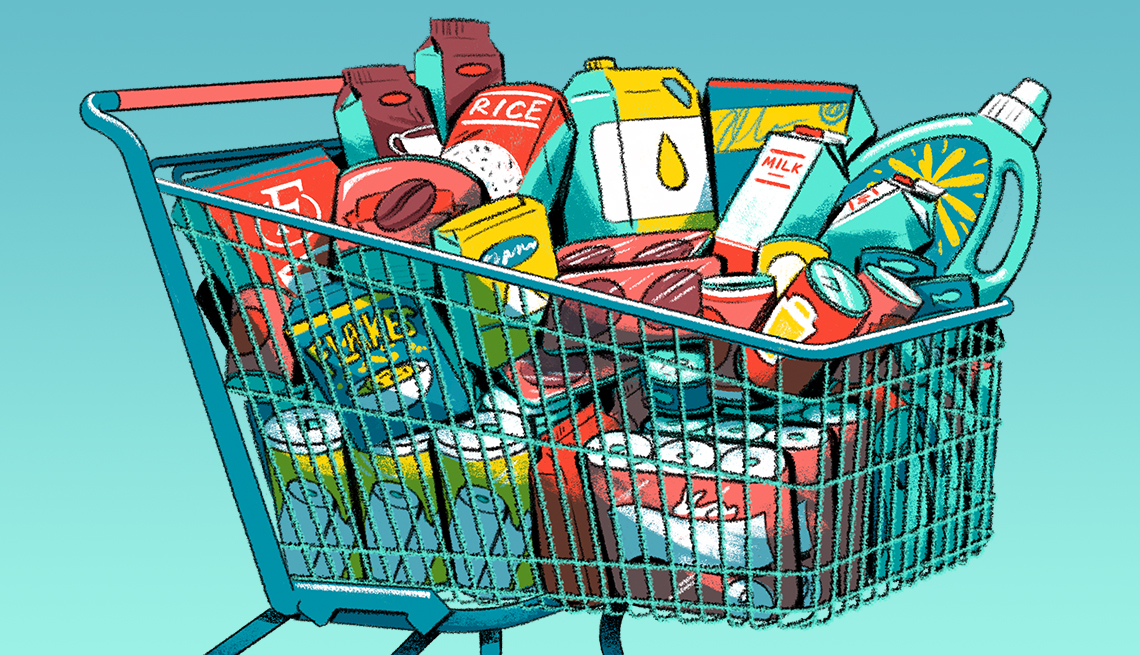AARP Hearing Center
Supersizing your groceries was a smart move last year, when worries about shortages and COVID at the supermarket ran high. Now, with food prices rising, buying in bulk can still make sense. But to eat well, avoid waste and save money, you need to know how long food will keep at home. Here’s a sampling of foods worth buying in bulk — and those to skip unless you’re feeding a crowd. Note that “use by” and “sell by” dates generally don’t refer to safety. (Baby formula is an exception.) Instead, these dates indicate how long food will retain peak quality, according to the U.S. Department of Agriculture (USDA). In many cases, you can stretch that out.
Yes
Canned goods
Low-acid foods such as meats and most veggies can be safe to eat “indefinitely,” the USDA says, if cans aren’t rusty, swollen or dented and they are stored in a cool, dry place. But quality will decline within two to five years. Acidic foods like canned tomatoes and fruit are good for up to 18 months.
White sugar
It has no expiration date, according to the Sugar Association. Store in opaque, airtight, moisture-proof containers, since sugar can absorb odors even through plastic bags.
Rice
Stored in an airtight container in a place that’s cool and dry, white rice can last for 25 to 30 years. Brown rice, however, contains oils that will spoil after about six months unless stored in the refrigerator or freezer.
Herbs and spices
Vanilla extract and salt can last virtually forever. Many other spices, especially whole or unground ones such as peppercorns and nutmeg, can last for up to four years. Dried, leafy herbs such as basil and oregano are good for one to three years.
Maybe
Meat
Many meats can last for months in the freezer. Although the flavors of bacon, sausage, hot dogs and lunch meat decline after a month or two, raw hamburger and fried chicken can go for three to four months before they lose their mojo. Longer-lasting meats include steaks and roasts (six to 12 months), and chicken and turkey parts (nine months).
Nuts
Unless you’re like my dad, who snacks on walnuts by the pound, loading up on nuts can be risky. In the pantry, they can go rancid in a few months or less. But you can extend the life of nuts in an airtight container in the freezer, where they can last for two years.

































































